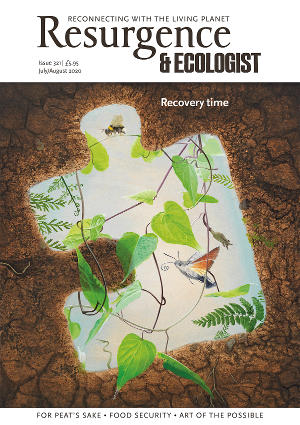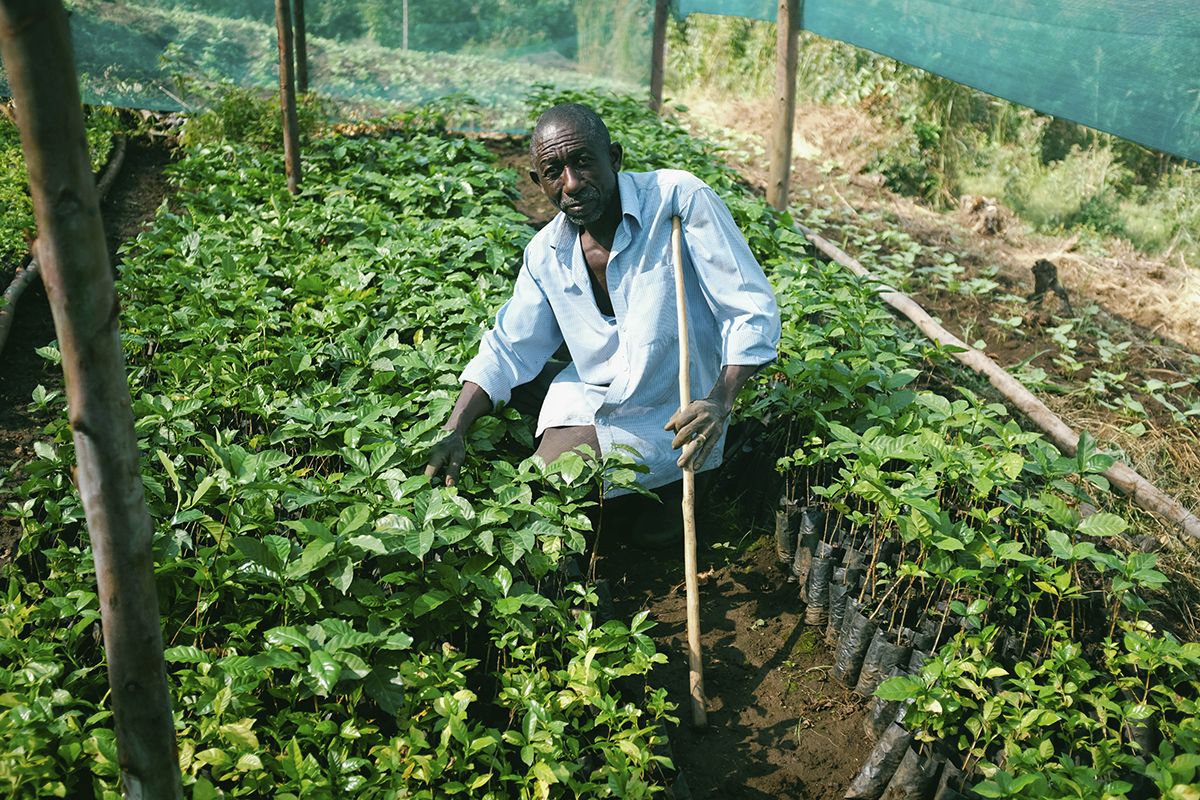Josephat Muhindo climbs a steep hillside, traversing the rugged landscape with apparent ease and paying no mind to his physical disability. He reaches the top. Before him lie six acres of land where coffee plants thrive beneath a banana plant canopy, and where a clever irrigation system helps onions grow quickly. This is one of many permaculture sites in this part of Western Uganda – there’s one more demonstration site, and 14 permaculture model homes. They’ve all been created by the Karambi Group of People with Disabilities, of which Muhindo is founder and executive director.
Founded in 1995, Karambi is run by and for people with disabilities, supporting sustainable agriculture skills so that they can grow enough food to eat and sell. So far, the group has rehabilitated 415 people with disabilities, economically empowered 235 people, and trained 171 people in permaculture.
Before Karambi was established, Josephat says, people in the region laughed at him and others with disabilities.
“After people learned about us, then they no longer laughed. Now they ask us for advice,” he says.
Karambi has also helped eight local schools create permaculture gardens. The children, inspired by the people teaching them, have taken their new skills home and helped their families grow food. The permaculture message is spreading.
Now, with Covid-19 sending much of the world into lockdown, Karambi is having to adapt. People are no longer able to sell food at the market, and the economic impact is increasing their vulnerability. But this group, ever resourceful, is finding ways to thrive.
“We are supporting people’s household gardening, as we have to stay at home during the lockdown. We’re also communicating with people through phone calls and SMS, then doing home visits,” Josephat tells me later via email.
He explains that during the lockdown, the government is encouraging people to eat more fruit and vegetables to strengthen their immune systems. This makes their work vital.
Douglas Maate, a beneficiary of Karambi, is on lockdown at home. “During this period, I’ve redesigned my gardens. Karambi has taught me how to plant fruit trees, and how to harvest more,” he says, adding that Karambi’s work has helped build a positive relationship between permaculture farmers and their neighbours, and has given him the skills to create an income and feed his family.
Hodilha Muhindo, another beneficiary, explains that Karambi is also providing information about staying safe during the current pandemic, for example by washing hands with soap and avoiding crowded places.
“The executive members visit us one by one, giving us some posho [a thick maize flour porridge] and beans. They’ve advised us to plant more vegetables and apply all the permaculture skills we have acquired,” she says.
Hodilha points out that the supplies aren’t always enough for big families, so Karambi is lobbying the government to bring in more food to help. The group is now awaiting a response.
“We are encouraging all our beneficiaries to plant crops, because we are going to have a post-Covid-19 crisis, and if families have their own food they will be in a better position,” Josephat says.
Karambi’s work has always been important, but the resilience of its beneficiaries amid the coronavirus crisis shows the impact that can be made by empowering people through permaculture.








